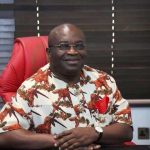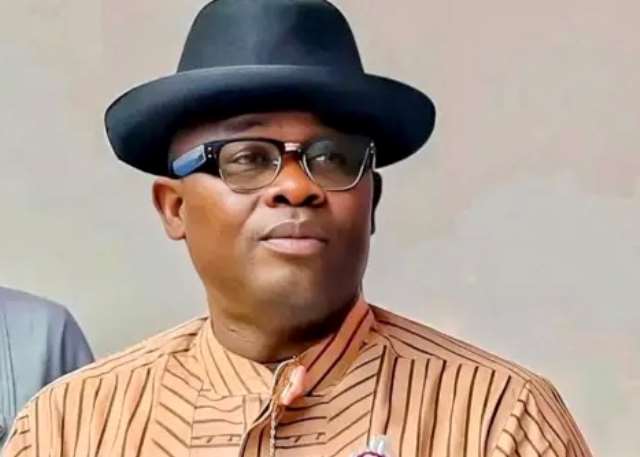By Daniel Obaseki
The current COVID-19 pandemic has taken the world by storm and shaken the health systems worldwide. Nations that apparently had advanced and sophisticated health systems have struggled to deal with this pandemic. Current morbidity and mortality figures show that the High Income Countries (HIC) have been hit the most by this pandemic, with some national death count in the tens of thousands, especially among the aged, frail and those with co-morbid conditions.
Nigeria has also reported a high number of cases especially in the metropolitan areas but nowhere near the figures coming from many developed societies. Several reasons have been postulated for the relatively lower numbers in Nigeria including climate and demographic factors. It’s pertinent to state that our understanding of this pandemic is still evolving.
There have been previous epidemics in the past in Nigeria including epidemics of Ebola, Lassa fever and other viral diseases but not much have been learnt and opportunities for massive rejig of the system have been missed. The current pandemic creates another opportunity for leaders and policy makers in Nigeria to critically appraise the healthcare system, understand its weaknesses and proffer long-term solutions.
Nigeria is a blessed nation and has all the ingredients to become a great nation, if well crystalized. From the perspective of a physician trained in Nigeria but working in a developed nation at the frontline, I think there are lessons Nigeria can learn from this pandemic.
First, no health system anywhere is foolproof. The ‘rich’ and ‘developed’ countries have struggled to deal with this pandemic. All health systems require continuous re-evaluation and strategization for better preparedness and service delivery.
Second, Nigeria has the ability to deal with her local issues. No country is problem-free. Every nation promotes the best of itself. We need to do a better job in information management, communication and messaging.
Second, Nigeria has the ability to deal with her local issues. No country is problem-free. Every nation promotes the best of itself. We need to do a better job in information management, communication and messaging.
Third, we cannot copy the healthcare policies of other nations hook, line, and sinker. We need to adapt fundamental healthcare principles to local realities and peculiarities for maximal impact. For instance, is total lockdown the best public health response for a small low-resourced Nigerian village during a pandemic when there are no cases locally?
Fourth, Nigeria cannot continue to depend on other nations for essential and much needed resources to deal with local issues. No charitable organization or nation can bear local responsibilities for the healthcare of a local populace. Why do we need foreigners to remind us of the importance of vaccinating our children, fighting and eradicating TB, HIV, Malaria etc? We cannot continue to depend on ‘aid’ that is often not forthcoming or reliable when other nations have to deal with their own problems concurrently. We need to advance research in ‘African medicine’ and consolidate our understanding of our local pharmacognosy, explore and maximize our local health resources in a scientifically sound manner to solve local problems and health needs.
Fifth, health systems tend to focus on primary and secondary healthcare networks including hospital care, neglecting the vital public health in many cases. Interestingly, active and responsive public health systems are the binding forces that keep the other systems from being overwhelmed so easily.
Sixth, we need to build well-coordinated and inter-twined primary and secondary healthcare systems with universal access for all citizens. This should be strongly bonded with a publicly funded public health system focused on health education, promotion and surveillance. We must be scientific and future looking in building our health institutions because it is inextricably linked to our security and safety as a people. It should be well regulated and controlled to the best of standards to serve the public.
Seventh, paying for healthcare is a big challenge worldwide. A blended payment system may work best in Nigeria, led by local authorities and states instead of the federal government. Universal access to basic care should be the starting point and this can be up scaled progressively. Additional services could be accessible through social insurance, co-operative unions or work-based access for those in an organized work force. Every region and state should decide on what works best for her. No one size fits all. We must reduce the need for payment at the point of access to healthcare. No healthcare system can thrive with out-of-pocket payment system, as it is in most of Nigeria.
Eight, Nigeria should take advantage of her Diaspora resources especially in the health care sector. Nigeria has thousands of successful healthcare workers abroad and they could be as successful at home if the conditions are right. We need to create opportunities for the Diaspora to be solidly involved locally. They are super eager to contribute to their home institutions and give back to the country that gave them their basic medical training at almost no cost. At the same time, we need to understand that the unmitigated loss of locally-trained professionals to foreign nations is a crisis and serious emergency that need to be addressed through the proper channel and policies. Appropriate steps should be taken to encourage local healthcare professionals and graduates to practise satisfactorily at home. There is no place like home!
Ninth, we need to up our game in the health sector by making high quality care accessible to all Nigerians. I believe this can only be achieved by expanding the ability of local private healthcare leaders to provide services to a larger population, including the ability to train new doctors both at the undergraduate and postgraduate levels. The government needs to develop policies that will lead to the development of big private health institutions that can compete with their public counterpart and provide services affordable to the general public. There are too many small solo private medical practices and most of them are not viable, reliable, sustainable or dependable for longitudinal patient care. We also need to develop standards of care for various medical conditions, re-engineer and empower the regulatory bodies and hold our leaders accountable to providing equal and accessible healthcare for all Nigerians.
Tenth, we must flatten the curve of corruption. The high-income countries were caught unawares by this pandemic. Their pandemic response was weak and wobbly initially but it has evolved into a success story with millions of lives saved. The secret to the success of the stay-at-home orders and social-distancing policies was underpinned on the ability of the governments to provide economic support and relief directly to individuals and businesses. We must continue to fight that tendency to direct public resources for private and selfish goal and divert the commonwealth at the expense of the populace. The effect of hunger is the same everywhere and among all people including its social consequences. We know that the deprived behave differently from the privileged. Civilization has no genetic or racial bearing. We must fight poverty, support the weak and give hope to our people. We are better and more secure when the least among us has no fear of hunger.Though there is corruption in every country, there can be no success in the fight against hunger and poverty until we flatten the corruption curve.
Eleventh, we need to define ourselves. We must vehemently reject the constant pressure to be defined, perceived or represented by the worst of us. We are constantly being labeled by other nations as poor, helpless, miserable, corrupt, sickly, lawless and hopeless as if all nations do not have some embarrassing aspects in their development. We should solve our problems by ourselves and understand that we do not have to impress organizations such as IMF, World Bank, etc. They exist only because we have not taken the bull by the horns as a nation. The shameful challenges we face as a people are for in-house national engagement while we tackle them. We should cultivate our national pride and refuse to be categorized by outsiders. We should stop talking down our country. We should advance our beauty and unity as a nation and confound our naysayers. We must all begin to participate actively in the political process, promote our values and be kind to one another.
Twelveth, believing and loving yourself is a true principle of success, not only for individuals but also for nations. Charity begins at home. Nigerian leaders should begin to celebrate her people, cultivate their ingenuity, promote patriotism, accountability, fairness and equality and, in no distant future, the Nigerian story can change.Let’s look inward and let’s fan into flame our resilience, courage and ‘better angels’. Most Nigerian physicians doing wonders abroad can do the same at home if the support and policies are right. There is no magic abroad! Its just a collection of people that are working daily to flatten and keep their corruption curve flat and are taking active steps to solve their local challenges.
There are no easy answers to healthcare problems and certainly not during a pandemic. It’s high time for Nigeria to wake up and become the giant she was meant to be. According to a Chinese proverb, the journey of a thousand miles begins with the first step. Let’s begin to take the steps towards a self-sufficient Nigerian health system.
* Daniel Obaseki, MD MPH FWACP CCFP, is a Nigerian healthcare provider based in British Columbia, Canada.(danielobaseki@mail.com
























Leave a comment